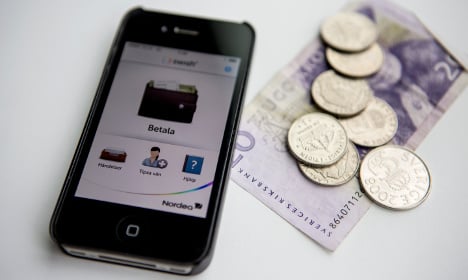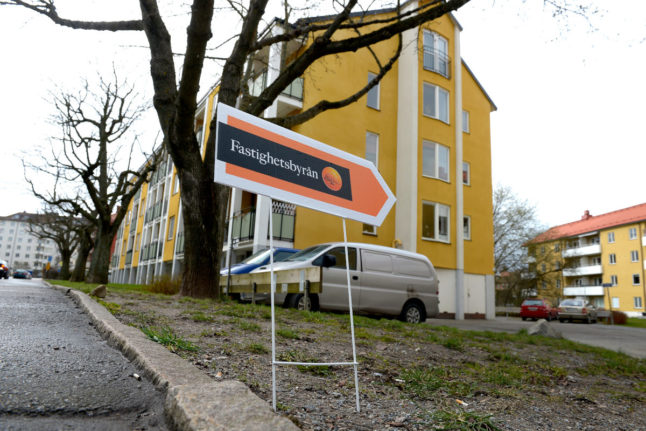In a country where most purchases are made electronically or by card it’s uncommon for Swedes to carry large amounts of cash on them – if any at all.
Now, it seems, even robbers are catching up with the times.
On Tuesday night two robbers in Visby on the eastern Swedish island of Gotland, had to think outside the box when their victim, a man in his 20s, said he didn’t have any cash on him.
After beating the man, they forced him to use the money transfer app Swish to transfer money to one of the perpetrators’ bank account.
“It was not a large sum, it came to over 80 kronor,” Ayman Abolaich, an investigator at Gotland Police told Metro.
READ ALSO: Summer pickpocket warning in Sweden
Launched in 2012 and developed in collaboration between the six largest banks in Sweden, Swish allows users to transfer money in real time using mobile technology.
Unfortunately for the tech-savvy robbers, they had failed to take into account the fact that their details would be recorded by the app when the payment was made.
Police have now identified the suspected perpetrator.
READ ALSO: Cashless society faces backlash from losers
Four out of five purchases are today made by card in Sweden, and a report last year suggested the Nordic country could become a cashless society by 2030.
The picture is very different in other parts of Europe. In Italy, for example, three-quarters of all consumer purchases are still paid for in cash. But in Sweden, even taxis and sellers of homeless magazine Situation Stockholm offer card payments.
However, some of the main critics of the cashless trend have warned that it is a development that could end up excluding the elderly and disadvantaged people living outside the banking system, as well as increasing the risk of internet crime.



 Please whitelist us to continue reading.
Please whitelist us to continue reading.
Member comments